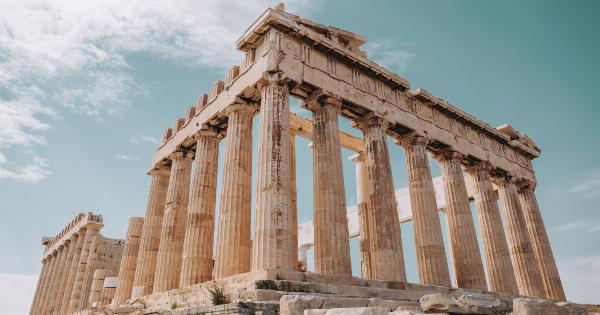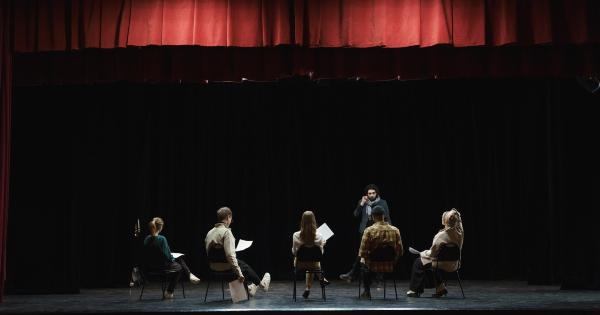Desire is a deeply ingrained aspect of human nature, and throughout history, eroticism has played a significant role in shaping Western culture.
From ancient Greece to modern society, the exploration of erotic desire has both intrigued and challenged individuals, as well as the societal norms and values that govern sexual relationships. This discourse on desire examines the intertwining of eroticism and Western culture, shedding light on its historical and sociocultural foundations.
The Ancient World: Eros and the Pursuit of Pleasure
In ancient Greece, the god Eros embodied the concept of erotic desire, representing the primal force that influenced human relationships.
Greek philosophers and playwrights, such as Plato and Euripides, considered erotic love as a potent force that drove individuals to seek beauty and pleasure. This perspective on desire as a transformative and transcendent experience shaped societal perceptions of sexual relations and romantic attachments.
Christianity: The Duality of Desire
With the advent of Christianity, a new discourse on desire emerged. The Church sought to regulate and control sexual desire, viewing it as inherently sinful and a distraction from spiritual devotion.
The dichotomy between the sacred and the profane, the body and the soul, resulted in a complex interpretation of desire, characterized by guilt, shame, and repression.
The Renaissance: A Rediscovery of Sensuality
The Renaissance witnessed a resurgence of interest in humanism, individuality, and the celebration of earthly pleasures, including erotic desire.
Artists like Botticelli and Titian depicted sensuality and intimacy in their paintings, challenging the constraints imposed by the Church. The rediscovery of Greek and Roman literature further fueled the exploration of erotic themes, unleashing a wave of new ideas and discourses surrounding desire.
The Enlightenment: Reason, Liberty, and Sexual Exploration
The Enlightenment ushered in an era of reason and intellectual freedom, enabling a more open discussion about desire.
Philosophers like John Locke and Jean-Jacques Rousseau advocated for personal liberty and the pursuit of happiness, which encompassed sexual satisfaction. The concept of consent and autonomy took center stage, laying the groundwork for ideas around sexual rights and emancipation.
Victorian Era: Repression and Hidden Desires
The Victorian era marked a return to sexual repression and the suppression of desire. The strict societal norms and the moralistic attitudes of the time led to the concealment of eroticism behind closed doors.
However, this era also cultivated a fascination with forbidden desires, as seen in the rise of the gothic novels and the exploration of themes like adultery and illicit affairs.
The Sexual Revolution: Liberation and New Frontiers
The 20th century brought about a seismic shift in attitudes towards desire through the sexual revolution.
Spearheaded by pioneers like Margaret Sanger and Alfred Kinsey, conversations surrounding sexual pleasure, contraception, and reproductive rights gained prominence. This era witnessed the breaking down of traditional taboos and the emergence of new forms of sexual expression.
The Impact of Media and Technology: Desire in the Digital Age
The advent of mass media and technology has further transformed the discourse on desire in Western culture.
From the proliferation of explicit imagery to the rise of online dating and virtual encounters, the digital age has revolutionized the way individuals experience and express their desires. However, it has also sparked debates around consent, privacy, and the commodification of sexuality.
Contemporary Society: Fluidity and the Deconstruction of Norms
In today’s society, desire is increasingly being embraced as a complex and fluid phenomenon that defies traditional categorizations.
The deconstruction of gender norms, the recognition of diverse sexual orientations, and the destigmatization of non-traditional relationships have opened new avenues for exploring desire. This ongoing discourse challenges long-held beliefs and paves the way for a more inclusive understanding of eroticism.
The Future of Desire: Ethics and Intimacy
As Western culture continues to evolve, the future of desire remains both exciting and uncertain.
Discussions around consent, pleasure, and the ethical implications of desire will shape the way society navigates intimate relationships and sexual encounters. Balancing individual freedoms with the need for mutual respect and understanding will be essential in creating a culture that embraces desire while fostering healthy and consensual connections.
Conclusion
Throughout history, desire has been a potent force in shaping Western culture. From ancient Greece to the present day, the discourse on eroticism has undergone significant transformations, reflecting the values and aspirations of each era.
By examining this intricate relationship, we gain valuable insight into the complexities of desire, enabling us to better understand ourselves and the societies we inhabit.





























